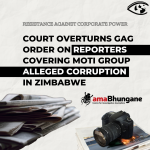Anglo Irish Bankers On Trial For Scheme That Led to National Collapse

Three top executives at Anglo Irish bank are on trial for a secret scheme to buy their own bank's shares that eventually triggered the 2008 collapse of the Irish economy. The bankers allegedly hatched the plan to cover up bets made by Sean Quinn, once Ireland's richest man.
The men on trial before judge Martin Nolan in Dublin's central criminal court are Sean Fitzpatrick, the bank's former chairman; William McAteer, Anglo's group finance director; and Pat Whelan, Anglo's former head of lending for Ireland.
"We were speechless," recalled Michael O'Sullivan, divisional lending director at Anglo Irish, when he learned the details of the scheme. He told the court that he came to the conclusion that what his colleagues were doing had "potentially disastrous consequences for the entire Irish financial system."
Ireland attracted a phenomenal amount of investment in its Celtic Tiger boom days after it set up an "offshore" tax haven named the International Financial Services Centre with a special limited-time tax rate of 10 percent. Among the beneficiaries was Anglo Irish bank, a property finance bank founded in 1964, which gained a reputation for lending quickly for risky local projects at a higher rate of interest that in turn swelled its profits. One of the ways that Anglo was able to grow exponentially was because it often accepted one mortgaged property as collateral for the next, a scheme not unlike a house of cards.
Over the course of a decade, beginning in 1994, house prices in Ireland rose five fold and by 2007 even Irish farm land was worth â¬66,000 ($88,000) per hectare, the highest in Europe. Ireland was soon building more than seven times as many houses per capita as the U.K. and the Irish had borrowed twice as much as their gross national product. At the time one in five workers in Ireland was employed in the construction industry, and lending to the sector totaled 28 percent of all lending (compared to 8 percent in the rest of Europe).
One notable beneficiary of this was Irish entrepreneur Sean Quinn, who started his career in 1973 quarrying gravel on his family farm, who eventually built a fortune in manufacturing by undercutting his competitors. In 2008, Quinn was the wealthiest man in all of Ireland, worth â¬4.722 billion ($6.13 billion)
At the time, Quinn had quietly built up a 29.3 per cent ownership stake in Anglo Irish by buying an exotic financial instrument called contracts for difference (CFD) that essentially involved gambling that the bank's share price would rise. Quinn made his bets in secret, using a bank registered in Madeira to invest a total of â¬3.2 billion ($4.4 billion) in Anglo Irish beginning in 2006.
When share prices in the bank started to fall in March 2008, bank executives discovered that Quinn was effectively the biggest shareholder in the bank. Panic stricken, they decided to lend money to ten wealthy people - who have been dubbed the Maple Ten based on the name for the scheme drawn up by Morgan Stanley - to buy a large chunk of Quinn's shares from him in the hope that would stabilize their value.
The problem was that since the Maple Ten had borrowed money from the bank itself so when the share price continued to collapse, the bank lost its own money.
"They said they had legal opinion from MOP (law firm Matheson Ormsby Prentice) and that the financial regulator was aware of it, and the Central Bank, everyone, was aware of it, and they wanted it done. That was it," Sean Reilly, one of the Maple Ten who was offered â¬60 million ($80 million), told the court.
When Anglo Irish teetered on the brink of complete collapse later that year, the Irish government pumped â¬30 billion ($33.8 billion) of taxpayers' money into it. The following year, Anglo Irish was nationalized and in February 2013, the bank was liquidated, essentially writing off the taxpayer's money. Meanwhile the government of Ireland has been forced to borrow â¬67.5 billion from the European Union and International Monetary Fund to cover the losses caused by the collapse of the national economy.
- 208 Regulation



